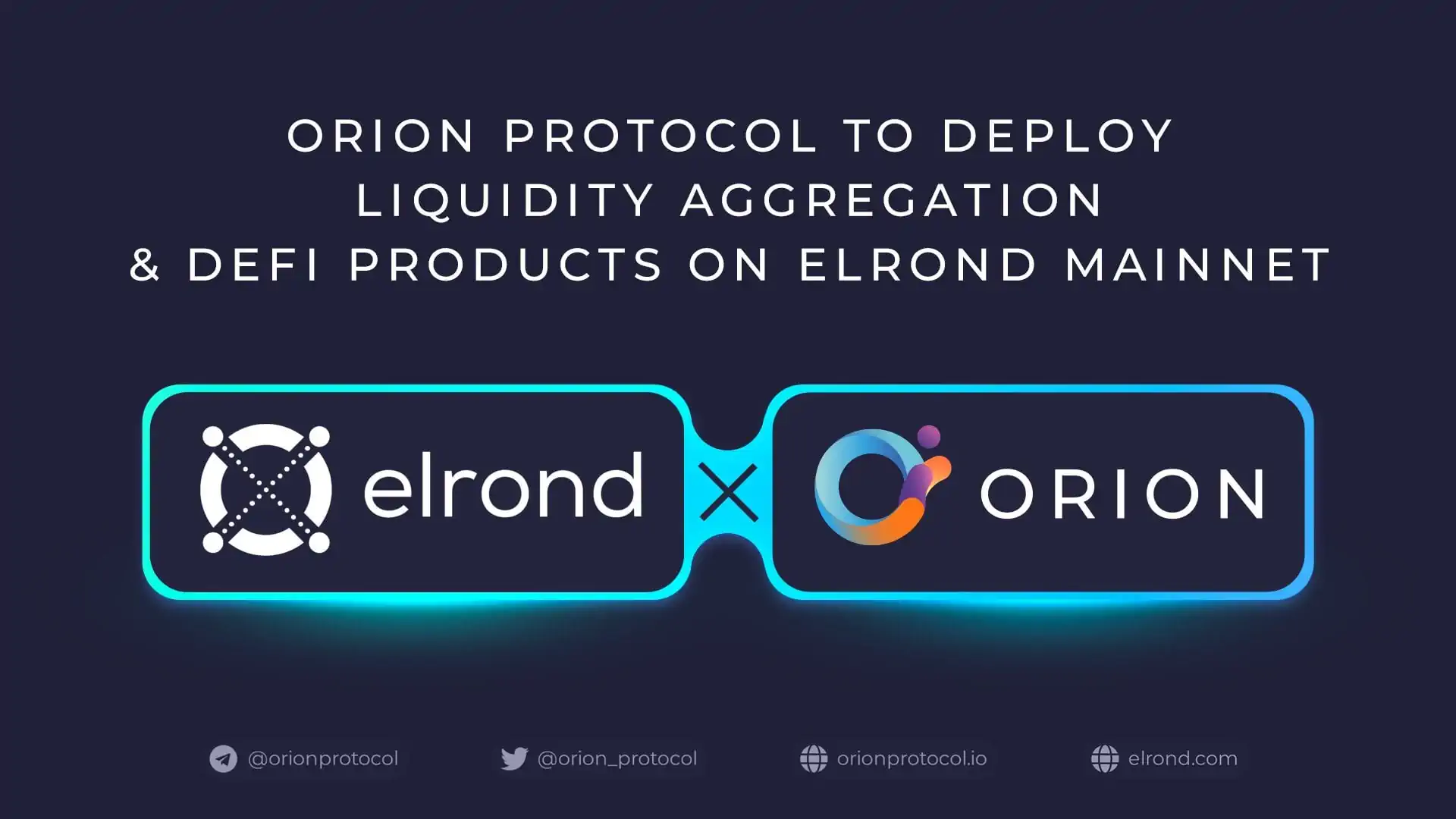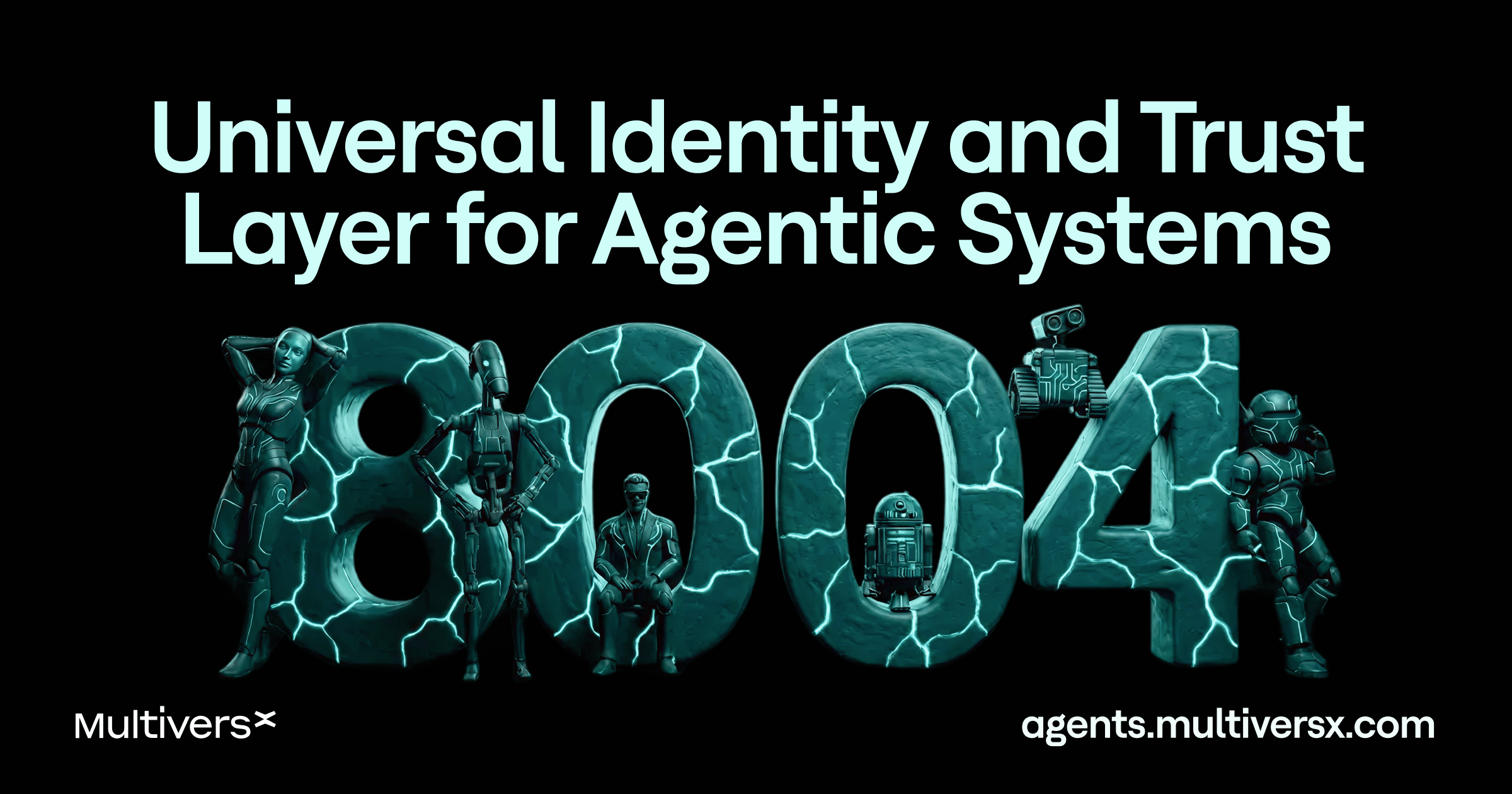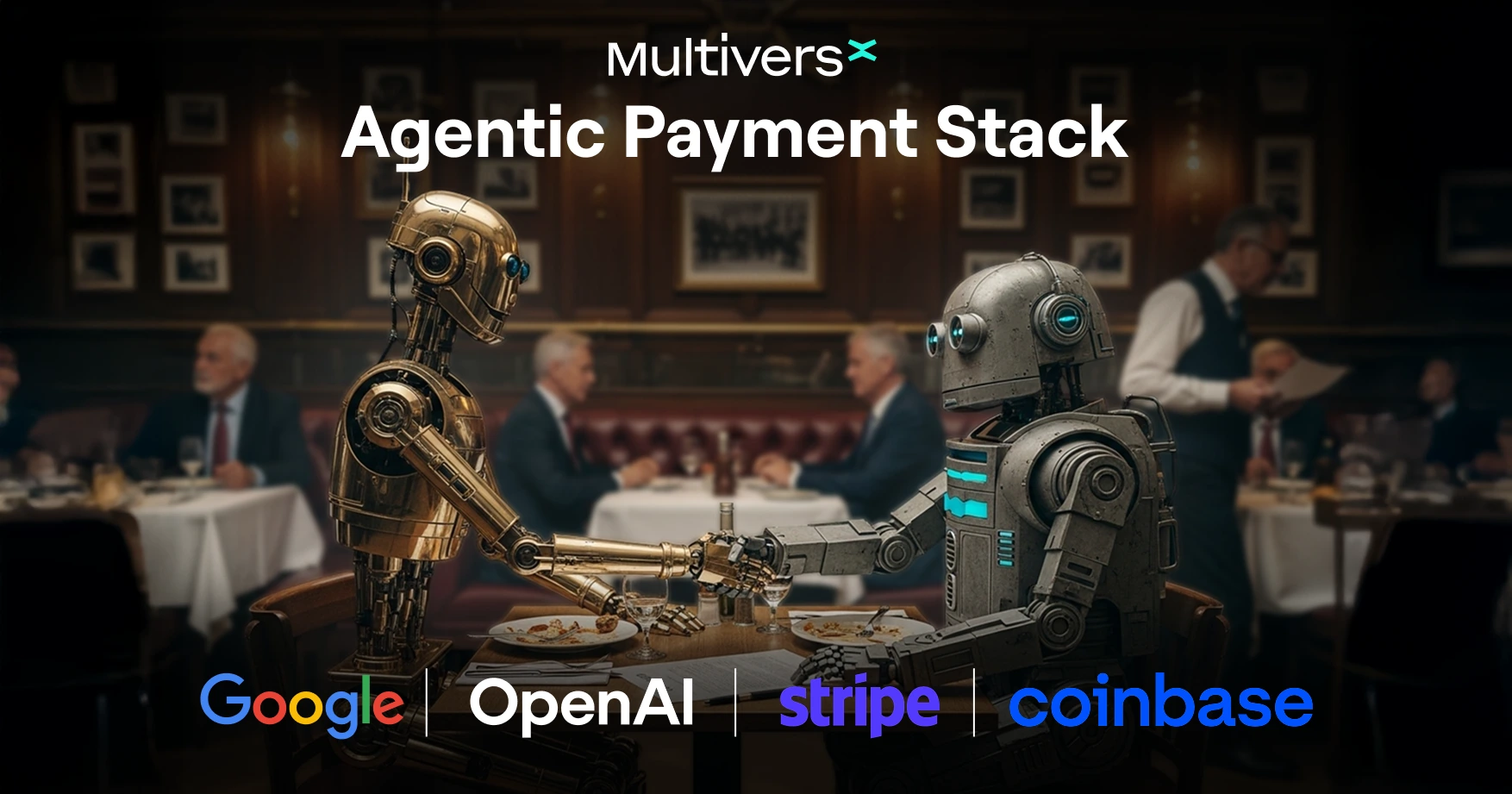


The Elrond network is a smart contract platform built to achieve performance on internet scale. Given that Elrond can process more than 10.000 transactions per second, with a 5 second latency, and 100x less transaction cost than Ethereum, it is instrumentally positioned to enable significant growth for the DeFi ecosystem.
The Elrond Integrated Development Environment, CLI, SDK, smart contract frameworks, debugging, and other instruments come together as one of the most useful toolkits for integrating blockchain technology into processes.
Orion Protocol is one of the emerging players in the DeFi space that are looking to leverage our comprehensive toolset and scalable architecture to deploy their liquidity aggregation capabilities. They are building a platform that will bring together order books from centralized and decentralized exchanges, to give traders access to deeper liquidity in a non-custodial manner.

The important milestones Orion will focus on are as follows:
- Orion Terminal - Elrond’s high throughput and low latency smart contract execution platform makes for a great starting point for Orion, who will deploy the Orion Exchange on our blockchain, complete with order validation logic, trade exchange & signed order messages.
- ETH Bridge & Metamask - Our partner will further develop additional integration tools to support their vision, such as Metamask integration and an Ethereum bridge, as open-source tools that will be reusable by any future integrations with the Elrond blockchain.
- Orion Brokers - In addition, the Orion Protocol specific broker network, which governs the interaction between end-users, the brokers providing access to liquidity, and the Decentralized Brokerage, will be deployed as Elrond Smart Contracts.
- DeFi Wallets & Assets - Pending the successful integration with the Elrond blockchain, Orion Protocol will enable a seamless integration of the Elrond, Metamask, Formatic & Coinbase wallets with their match-making engine, enabling non-custodial trading of synthetic assets such as bBTC & eUSDT.
The two partners are looking to experiment with an IEO-like fundraising platform that enables interested participants to access investment opportunities using staked collateral as eligibility criteria. As part of this technical experiment, a small portion of the Orion Protocol public allocation will be available to interested Elrond stakeholders, based on the amount of $ERD staked in the Genesis Staking contracts.
More detailed information about the ongoing collaboration with Orion Protocol, the toolset development and decentralized fundraising approach will follow.
About Elrond
Elrond is a new blockchain architecture, designed from scratch to bring a 1000-fold cumulative improvement in throughput and execution speed. To achieve this, Elrond introduces two key innovations: a novel Adaptive State Sharding mechanism, and a Secure Proof of Stake (PoS) algorithm, enabling linear scalability with a fast, efficient, and secure consensus mechanism. Thus, Elrond can process upwards of 10,000 transactions per second (TPS), with 5-second latency, and negligible cost, attempting to become the backbone of a permissionless, borderless, globally accessible internet economy.
About Orion Protocol
Orion Protocol is a DeFi project that has been in development since 2018. Until mid-2020, the project had been largely self-funded by Orion’s team, which is led by Alexey Koloskov, who created the Waves DEX, which is the flagship product of the WAVES blockchain and is consistently one of the most actively used decentralized exchanges in the world.
The liquidity aggregation generated by the Protocol enables Orion to deliver a series of products that have iminent market demand, including the Orion Terminal, Oracle, aggregated lending, and trustless high-margin trading.
More about the development: Orion Website | DAO Maker Overview | Orion Telegram
*Disclaimer: Nothing in this blog post constitutes an offer to sell, a solicitation of an offer to buy, or a recommendation of any security or any other product or service by Elrond Network or any other third party regardless of whether such security, product or service is referenced in this blog post.






